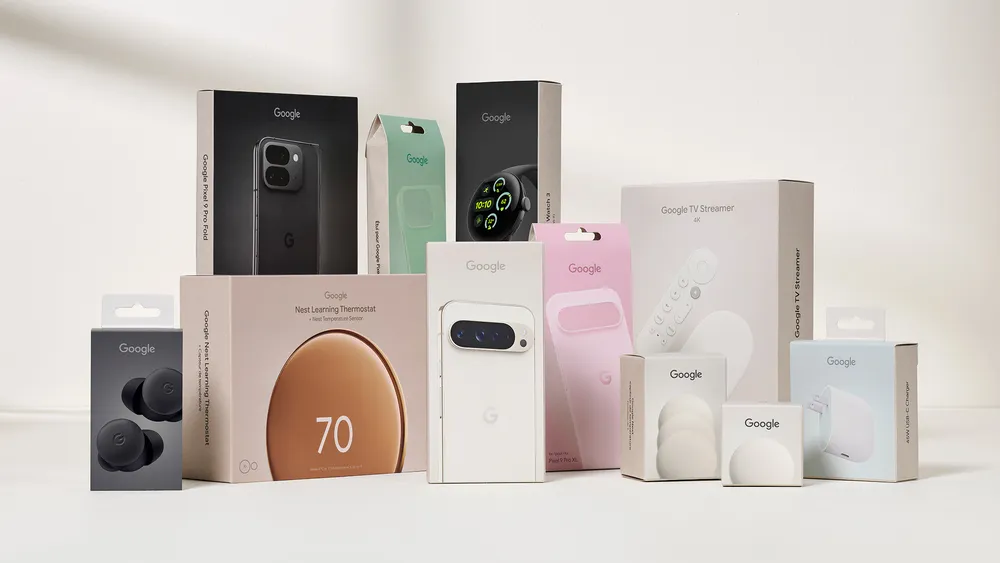Google Leads the Charge with 100% Plastic-Free Packaging

- Innovative packaging: Google’s Pixel, Nest, and Fitbit devices now feature 100% plastic-free packaging, setting a new industry standard.
- Sustainable design: The new packaging uses stronger, stretchable paper and molded fiber pulp made from recycled materials, reducing environmental impact.
- Collaborative approach: Google shares its Plastic-Free Packaging Design Guide to inspire and aid other companies in adopting sustainable practices.
Google has achieved a significant milestone by making the packaging for its Pixel, Nest, and Fitbit devices 100% plastic-free, well ahead of its 2025 goal. This move is part of Google’s broader commitment to sustainability, and it demonstrates the company’s ability to innovate while keeping environmental impact at the forefront.
“Not only did we reach our goal early, but we also set a new design standard along the way,” Google announced, highlighting the dual achievement of sustainability and aesthetic appeal in their new packaging.
The new packaging isn’t just plastic-free—it’s smarter. Developed in collaboration with material suppliers, the packaging now features a new paper that is three times stronger and 70% more stretchable than previous versions. This innovation has led to lighter packaging, which in turn reduces the carbon footprint associated with transportation.
Inside the box, Google replaced traditional plastic with molded fiber pulp partially made from recycled newspaper, ensuring that the packaging is both protective and eco-friendly. The speckled texture of the new materials not only enhances the visual appeal but also signals recyclability to consumers and recycling centers alike.
Google’s new peelable closure label further underscores the company’s attention to detail in sustainable design. This label not only secures the box but also ensures a clean opening experience, leaving no torn edges or residue.
Related Article: Google-Funded Mission:Data Launches Interactive Map to Educate Policymakers on U.S. Energy Data Access
Recognizing the collective responsibility in sustainability, Google has updated its Plastic-Free Packaging Design Guide. This guide, enriched with insights from Google’s journey, is aimed at helping other companies reduce their packaging waste. “Innovation in sustainability should be collaborative, not competitive,” Google emphasized, inviting others to join in amplifying the impact of sustainable practices.
With this comprehensive approach, Google is not just making progress for itself but is paving the way for industry-wide change. The company’s commitment to sharing its knowledge exemplifies a forward-thinking approach to corporate responsibility.












